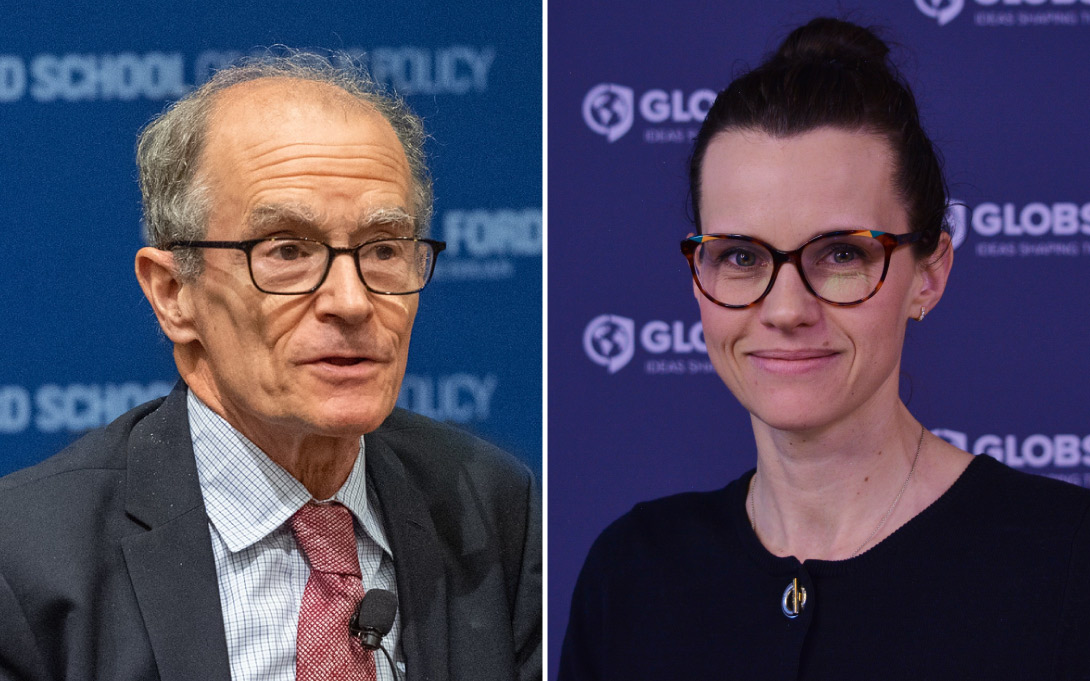The United States and central and eastern Europe in a changing geopolitical environment
Speaker
Ambassador Daniel Fried, Weiser family distinguished fellow at the Atlantic Council and Dr. Kinga Brudzinska, director of Future of Europe at GLOBSEC Policy InstituteDate & time
Location
This is a Virtual Event.
This event is open to members of the U-M community (faculty, staff & students)
Ambassador Fried and Dr. Brudzinska will discuss recent developments in central and eastern Europe and U.S. foreign policy due to the challenges or barriers to democracy in key states such as Poland and Belarus, the implications of the recent German election, and the implications of these developments for crafting the Biden administration’s approach to the region.
About the speakers
Kinga Brudzinska has ten years of professional experience in country-specific and policy analysis and advice. Her main research interests lie in the fields of EU foreign policy and EU institutional architecture, with a particular focus on relations among the Member States, and the concept of differentiated European integration. She has chiefly worked on Visegrad countries, and Spanish speaking world. Prior to GLOBSEC, she worked at the Permanent Representation of Poland to the OECD, the Polish Institute of International Affairs (PISM) and the Permanent Secretariat of Community of Democracies. Kinga is an author of the chapters in books, articles in press (i.e. Fair Observer, Es Global, EurActiv, Public Service Europe) and various analyses on the EU and the Latin America and Caribbean region. She is Alumna of the ZEIT-Stiftung Ebelin und Gerd Bucerius Global Governance Network, and the Humanity in Action & Lantos Foundation’ Senior Fellow. Kinga holds Ph.D. in Arts of Political Science, Faculty of Political Science and Journalism from the University of Warsaw, MA in International Relations from the Faculty of Economics at the Cracow University of Economics and Diploma in Latin American Studies from Monterrey Institute of Technology and Higher Education (TEC Monterrey) in Mexico.
Ambassador Daniel Fried, in the course of his forty-year Foreign American policy in Europe after the fall of the Soviet Union. As Special Assistant and NSC Senior Director for Presidents Clinton and Bush, Ambassador to Poland, and Assistant Secretary of State for Europe (2005-09), Ambassador Fried helped craft the policy of NATO enlargement to Central European nations and, in parallel, NATO-Russia relations, thus advancing the goal of Europe whole, free, and at peace. During those years, the West’s community of democracy and security grew in Europe. Ambassador Fried helped lead the West’s response to Moscow’s aggression against Ukraine starting in 2014: as State Department Coordinator for Sanctions Policy, he crafted U.S. sanctions against Russia, the largest U.S. sanctions program to date, and negotiated the imposition of similar sanctions by Europe, Canada, Japan and Australia.
Ambassador Fried became one of the U.S. government’s foremost experts on Central and Eastern Europe and Russia. While a student, he lived in Moscow, majored in Soviet Studies and History at Cornell University (BA magna cum laude 1975) and received an MA from Columbia’s Russian Institute and School of International Affairs in 1977. He joined the U.S. Foreign Service later that year, serving overseas in Leningrad (Human Rights, Baltic affairs, and Consular Officer), and Belgrade (Political Officer); and in the Office of Soviet Affairs in the State Department.
This event is open to Ford School community and students. Registration required.